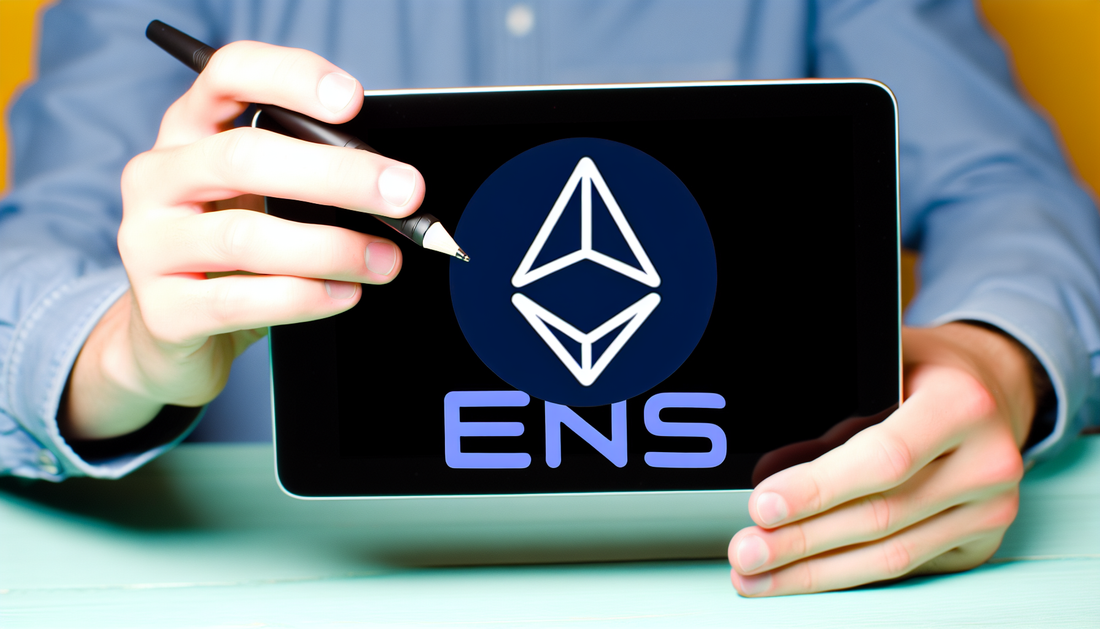
Ethereum Name Service: A Competitive Landscape
Share
Comparing Ethereum Name Service (ENS) to Its Rivals
The Ethereum Name Service (ENS) is a decentralized naming protocol that simplifies interactions with blockchain technologies, allowing users to replace complex wallet addresses with human-readable names. While ENS has gained significant traction in the crypto community, it faces competition from several rivals offering similar services. This article explores how ENS stands up against its competitors.
1. ENS vs. Unstoppable Domains
Unstoppable Domains is one of ENS's most prominent competitors. Both platforms aim to resolve the complexities of blockchain interaction by offering domain-based wallet addresses, but they operate on different principles. ENS uses the Ethereum blockchain and leverages smart contracts to function as a purely decentralized service. In contrast, Unstoppable Domains operates on multiple blockchain systems, like Ethereum and Polygon, widening its reach.
A critical difference lies in governance. ENS benefits from decentralized governance, using a native governance token ($ENS) for decision-making processes. This system gives the community a say in the protocol’s future direction. Unstoppable Domains, on the other hand, employs a more centralized structure, which can limit the participatory roles of its users. That said, Unstoppable Domains provides lifetime ownership of domains after a one-time purchase, whereas ENS requires annual renewal fees, a potential drawback for budget-conscious users.
2. ENS vs. Handshake (HNS)
Handshake (HNS) positions itself as a decentralized, uncensorable naming system aiming to replace the traditional DNS protocol. Unlike ENS, Handshake uses its blockchain infrastructure entirely separate from Ethereum. This approach ensures independence but limits compatibility with Ethereum-based decentralized applications (dApps), which ENS natively supports.
Handshake offers a broader scope of top-level domain (TLD) customization, making it more flexible for businesses seeking unique branding. However, ENS benefits from Ethereum's robust ecosystem, with compatibility across most major wallets and services. In terms of adoption, ENS holds a stronger presence due to its seamless integration with Ethereum-based projects and applications.
3. ENS vs. Solana Name Service (SNS)
The Solana Name Service (SNS) is another competitor focused on simplifying crypto addresses, specifically within the Solana ecosystem. Unlike ENS, SNS leverages Solana's high-speed, low-cost blockchain infrastructure, making it an appealing option for users prioritizing fast transactions with minimal fees.
One notable advantage of ENS over SNS is its established compatibility across multiple blockchain ecosystems via bridging solutions, whereas SNS remains tied to Solana. This interoperability ensures ENS is more accessible to a broader range of users outside the Ethereum ecosystem. However, for users exclusively interacting in the Solana network, SNS provides a streamlined and cost-effective alternative.
4. ENS vs. Emercoin (EMC)
Emercoin also offers a decentralized naming service called ENUMER, which provides domain resolution and similar utility. Unlike ENS, Emercoin operates on its blockchain, providing a unique approach to decentralization. However, the Emercoin ecosystem is niche and less developed than Ethereum's expansive network. ENS benefits significantly from Ethereum's established infrastructure and widespread adoption, giving it an edge for larger-scale use cases.
On the other hand, Emercoin emphasizes versatility, supporting use cases like SSL certificates and decentralized storage. These features position it as more than just a naming protocol but also introduce complexity, which may not appeal to average users wanting simplicity.
Final Thoughts on ENS's Market Position
While the Ethereum Name Service enjoys widespread usage and seamless integration within Ethereum’s expanding ecosystem, competitors like Unstoppable Domains and Handshake provide viable alternatives, each with its strengths and limitations. When selecting a blockchain naming service, factors such as cost, blockchain compatibility, governance, and user experience play a crucial role in determining the ideal choice for users.
